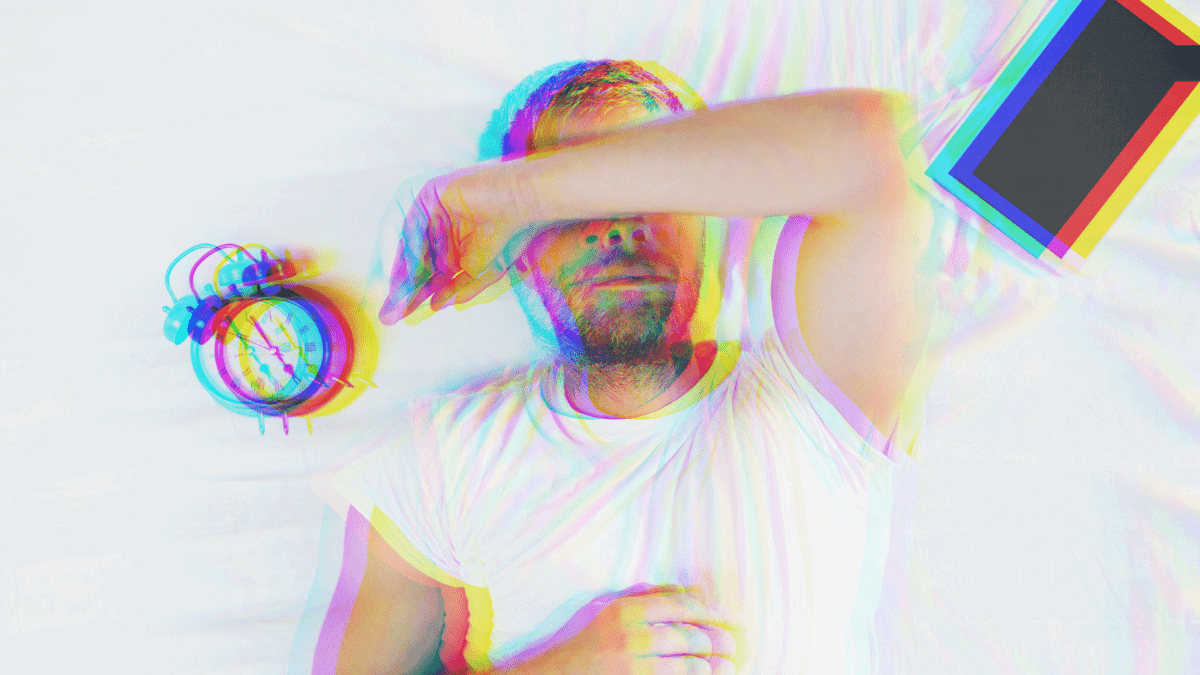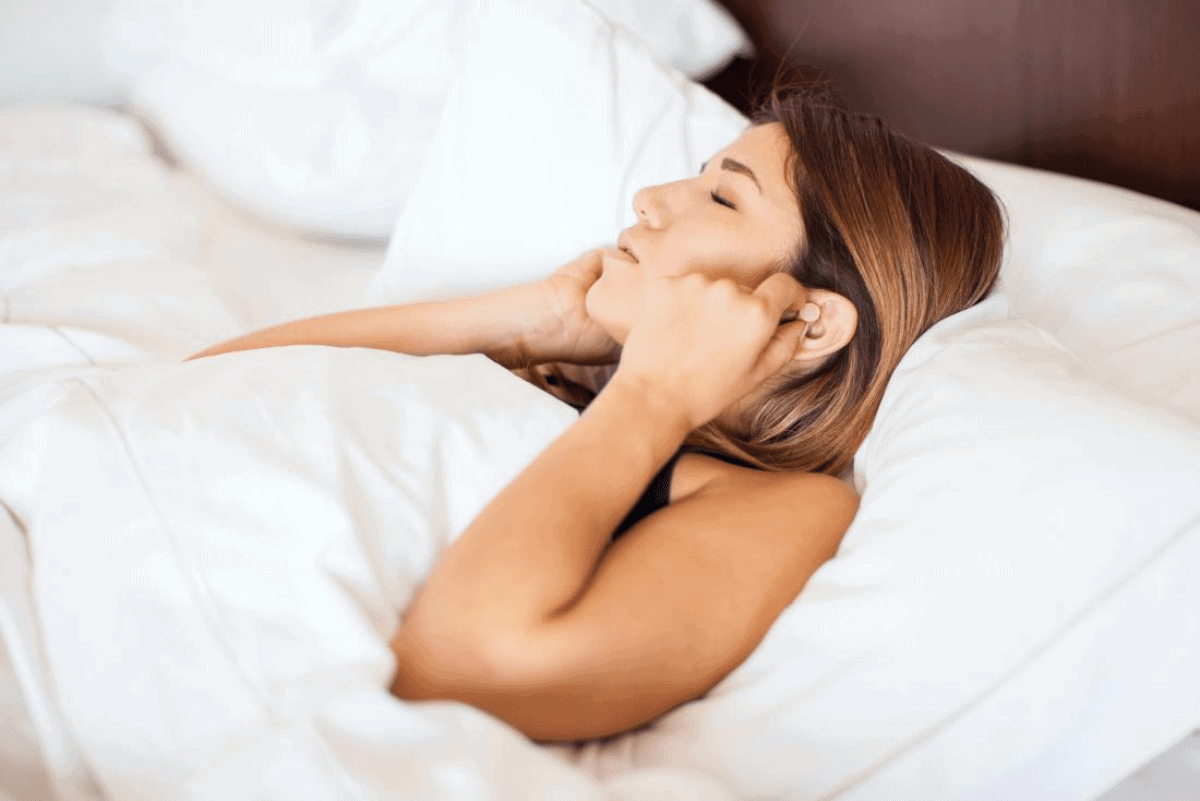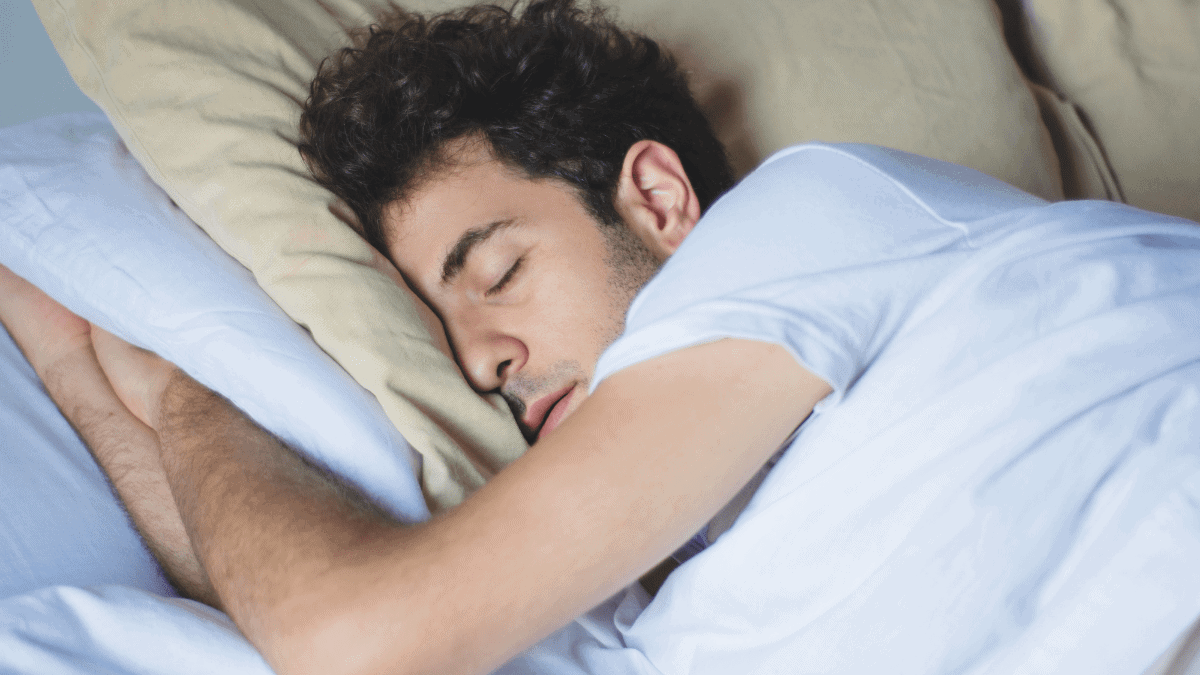The person who values sleep the most is the person who isn’t getting any!
Most of us take sleep for granted. We push into the early hours to finish that client project. Or work from bed to clear that inbox. All of which I am guilty of, by the way.
But what if we finally accepted the truth; good sleep is the key to unlocking your productivity. Sleep supports your mental & physical health in a way that few (free) things can. The science backs it up.
These 9 expert tips will set you on the right path to dream sleep.
Tips To Get Better Sleep
Final Thoughts
I am currently furnishing my brand new apartment. So the concept of the perfect sleeping environment is top of mind right now. I want the perfect safe haven to rest my weary head after hours and hours behind the desk.
So, what makes the ideal sleep environment?
It has been scientifically proven that darkness is vital for good sleep. Your body uses the natural cycles of the sun to set your circadian rhythms. But the brain is silly and can’t tell the difference between sunlight and artificial light.
Having inconsistent light when sleeping at night can lead to sleep deprivation, or worse. A 2018 study showed that exposure to bedroom light at night correlated with depressive symptoms in adults. That’s a scary thought.
Consider investing in some blackout blinds or eye masks to make sure you get complete darkness at night.
According to the Sleep Foundation, the ideal temperature for sleep is around 65F/18C. That’s probably a little colder than you first thought.
For me, that’s a little too cold. But the point remains that it’s better for your bedroom to be too cold and add blankets. A room that is too hot will make your sleep suffer.
Ahh mattresses… I didn’t realize just how expensive mattresses are! A good quality mattress is worth every penny. There is a whole system as to the mattress that would best suit your sleep style. It’s worth doing some research on the firmness and size of the mattress you need.
If you can’t get a new mattress, try a mattress topper that can change the comfort level of the one you already have.
Chronotypes are interesting. The simple way of thinking about them is the early bird/night owl dichotomy. It’s essentially your energy profile. How do you best operate? When do you have the most energy?
There are four main chronotypes (oddly enough night owls and early birds are not included!)
Knowing your chronotype helps you figure out a good bedtime and waking time. Once you know your chronotype, you can treat yourself like your own child. Set bedtimes and set waking times.
If you need some extra tips for waking early, check out my tips on how to become a morning person.
Yep, I said it. Do you feel attacked? Me too!
I love a good nap but it can really ruin your sleep schedule.
Studies show that a 10-30 minute nap no later than the early afternoon can help boost your energy a little. But longer naps can lead to lower productivity and sleep issues.
It’s a bit of a slippery slope. I can’t be the only person who sets an alarm for a 20min nap and manages to drift into a 1.5hr sleep. Once you cross that threshold, it messes with your digestion, energy levels and sleep schedule overall.

So try getting rid of long naps for 30 days. It could revolutionize your sleep!
It’s long been known that the glare from our devices can affect our sleep patterns. Our computers, tablets and phones emit blue light which can affect our ability to create melatonin at night. Melatonin is the sleepy hormone.
Blue light glasses are scientifically proven to block blue light from being absorbed through our eyes. Many swear by them to help them get good sleep at night.
Can't resist scrolling before bed?
The very best thing to do is to lock away your devices no later than an hour before bed. However, I’m under no illusions of how realistic that is. You think I can resist scrolling through Instagram before bed? Absolutely not. Blue light glasses are my saviours.
I won’t stick on this point for too long because I appreciate meditation is not for everyone. Beyond the multiple scientific studies showing that meditation is a miracle for sleep, I can give you my personal perspective.
I started meditating every day as an experiment a few months ago. And no, it hasn’t transformed my life the way that so many people report. I don’t suddenly have more energy or a clearer mind. Meditation is a practice. A muscle that grows rather than an instant gratification thing. But one thing it did change instantly was my sleep.
Since meditating, I sleep deeper, longer and easier than ever before.
It’s not for everyone, but don’t knock it until you’ve tried it.
A great place to get started is to download a free app such as Headspace, Calm or Insight Timer. Or, just run a quick search on YouTube and try out some guided meditations there.
The sounds you need to sleep with are entirely personal. Some people thrive with white noise, brown noise, rain noises, classical music or even bedtime stories.
Others prefer complete silence. In which case earplugs may be useful for you.

It can take some time to figure out what works best for you. It helps to identify how light you sleep. If noises generally keep your brain active then a pair of good earplugs are worth purchasing.
This is probably where I’ll lose you. None of us like the constant reminder that we should be exercising regularly. So sorry to poke you again!
Regular exercise has been proven to help aid the quality of sleep.
The jury’s out regarding whether the time of exercise affects your sleep quality or not. Some find that it keeps your body too alert to exercise too late in the day. Some find that gentle exercise or even strength-based exercise improves daytime wakefulness and sleep quality at night.
You know what I’m going to say by now – experiment! Test out the best exercise times for your sleep-wake cycle and routine. You’ll surely find the sweet spot.
If you’re struggling to find time in your busy day for working out, check out our piece on how to make time for exercise.
There are truly only two things you should be doing in your bedroom: sleep and sex.
Both are fabulous activities and require a sacred space. Now, realistically, we all tend to muddy the waters when it comes to the function of a bedroom.
We eat there, watch TV, work, exercise – the works. If you live in a small apartment then it’s difficult to have that separation.
If you can’t make your bedroom a solely sleepy place, then consider at least making your bed a sleep-only space. If you want to work, scroll Instagram or exercise, you need to use a different side of the bedroom that’s not your bed.
Try not to confuse your brain into associating your bed with anything other than sexy time and sleepy time. See how it affects your sleep long term.
Your digestive system and your sleep go hand in hand. All good things come down to your nutrition so pay attention to what you eat and drink before you sleep.
As a general guide:

Can we agree to make this the month that we finally win the game of sleep?
The important thing to remember is that you are unique. Not every technique will work for you so the aim of the game is experimentation.
There are certain things that you may already know about yourself. For example, I know that I sleep better with soothing sounds or bedtime stories. Silence paired with darkness freaks me out. But defining the perfect sleep schedule is still a work in progress.
My advice would be to pick a maximum of three of these tips to work on this month. See how it changes your quality of sleep and adjust from there. Happy snoozing!
Olivia De Santos is a freelance writer, wedding planner and entrepreneur from London, UK. She's a world traveller, wordsmith, film buff, mental health advocate and shea butter enthusiast.